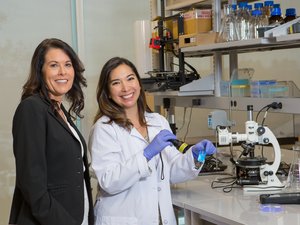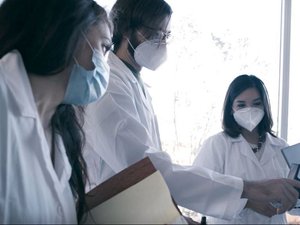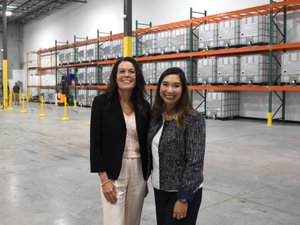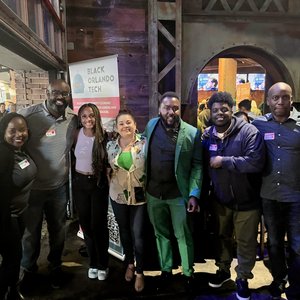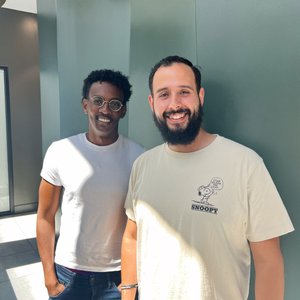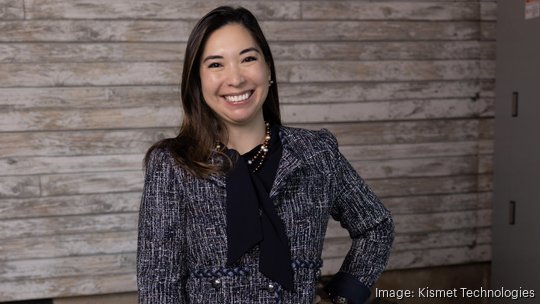
Orlando-based Kismet Technologies CEO Christina Drake said her firm plans to take its NanoRAD disinfectant to market in September or October of this year — now that it is well funded.
Kismet on August 1 announced the completion of a $5 million seed round the same day it was awarded a $1 million National Science Foundation Phase II Small Business Technology Transfer grant that was two years in the making. Both acquisitions were major accomplishments for the firm, but the Phase II award — despite the dollar amount being lower — is just as meaningful to Drake. Drake described the lengthy review process as “tortured.”
“I've had over 30 competitive grants awarded, and this one was the hardest to get over the finish line,” she said.
For context, understand that the National Science Foundation awards fewer than 10 Phase II grants per year. Kismet is only the second Florida company in 10 years to receive the grant. Stereology Resource Center was awarded $736,172 in 2019.
Kismet’s product, NanoRAD, is a disinfectant used in coatings and films to provide nonstop virus and bacteria protection for weeks to months at a time.
Orlando Business Journal asked CEO Christina Drake to share how it all started and what’s next for the medtech firm that came to life during the Covid-19 pandemic.
You worked on the grant process for two years, but you had the idea for your product before that. Can you describe those moments?
In March 2020, when Orlando was first under curfew for Covid-19, I went to the grocery store to get some milk. I was about to open the refrigerator when an employee came and started spraying bleach disinfectant on the handle, which I reacted to because I'm asthmatic. I was trying not to cough or sneeze, because if you remember, at that time, if you coughed or sneezed in public, people got really upset with you. He sprayed and then immediately wiped, giving the disinfectant no time to work. I thought, ‘Oh my God, it’s not even disinfected.”
I started maniacally reading up on how disinfectants work. After a day of that, I thought, ‘I think I know a material that needs some tweaks but I could probably get it to work.’
How did you go from concept to reality?
My former doctoral advisor is probably the world's foremost expert in cerium oxide nanoparticles for biotech applications. So I reached out to him and was like, ‘Hey, I have this idea for a new type of dry disinfectant. Do you want to work with me on it?’ We had a proposal pulled together within a month to send to NSF, and we got Phase I funding within five months of the first conversation. By October, we found out that not only does the technology work, it works better than we thought. It took off from there.
How did you keep the company going prior to getting the Phase II award and completing your seed round?
Most companies go out of business between Phase I and Phase II. We were very fortunate because we had angel investors that kept us afloat as we went through fundraising and that was what got us to the point where we were viable to receive the Phase II award.
Now that you have private equity funds and the award, what’s next?
We’re working on scaling up manufacturing. We need to get clear on things like shelf stability and shelf life, because that can make or break whether a nanotechnology does well in the market since it affects logistics and supply chains and impacts the cost. We have to figure out how to properly use and store the chemical and get the high potency out of our product. Can I store it in a warehouse that's running at 120 and 130 degrees Fahrenheit? For how long can it be transported by plane under pressure? Also, there are a few variants we want to work on to expand our product offerings.
Can you describe your customer base?
I think that our first official customers will likely either be from [the] equine [industry] or in the clean room space.
We are in two pilots with hospital systems. One's focused on their orthopedic ward, preventing surgical site infections. We're in another hospital for privacy curtains because patient curtains don't get washed very often.
We also are focused on the equine industry and veterinary spaces. We're working with groups in Ocala right now. We're in pharmaceutical and medical device clean rooms and medical cannabis labs because they have a lot of regulatory requirements. With medical cannabis, there aren’t many disinfecting chemicals that are appropriate to be used around those products.
Businesses in UCF's Incubator
Kismet Technologies is a client of the UCF Business Incubation Program, which has nine locations in Central Florida and offers services to businesses in three stages: new start-ups, businesses that have some traction and are ready to scale and companies that have operations elsewhere but want to establish a footprint in the Orlando area.
The incubator offers robust support systems — coaching, development support, operations support, key industry introductions and office space. The incubator staff's position is that if they understand a company's stage, unique needs and industry environment, they can provide the mix of support that is most likely to unlock success.
Attentiveness to the businesses in its care is fundamental to good outcomes, said Program Director Carol Ann Logue. Also, she said, the incubator isn't just about cultivating the health of various parts of a company. It's also about encouraging leadership, said Logue, who remembers when Kismet came to the incubator in 2019.
"At the time, Christina had a different focus. She had funding primarily from the Department of Transportation and she and her team were doing innovative things, but that experience at the grocery store that sparked NanoRAD took the company on a real transition. It's one thing to be very confident as a scientist and technologist and then another to be very confident with a product that has extraordinary groundbreaking impact from a social and health perspective. As a leader, she's always reaching out to get smarter, reaching out to get help and evolving her role as a CEO. That's the transition we see with a lot of our companies."
Kismet Technologies
- Top executive: Christina Drake, CEO
- Year founded: 2019
- Contact: kismet-technologies.com
- Central Florida employees: 12
- Employees company wide: 13
Sign up here for The Beat, Orlando Inno’s free newsletter. And be sure to follow us on LinkedIn, Facebook and Twitter.
